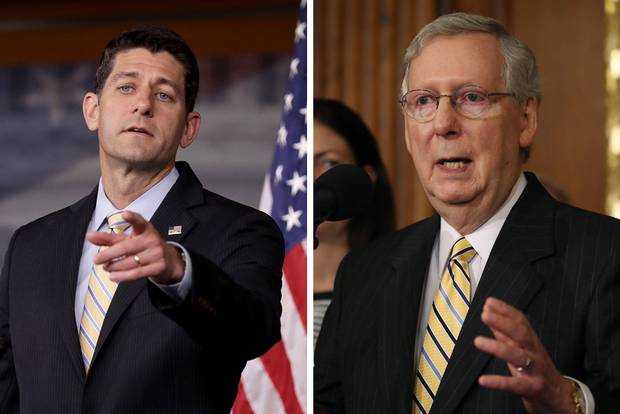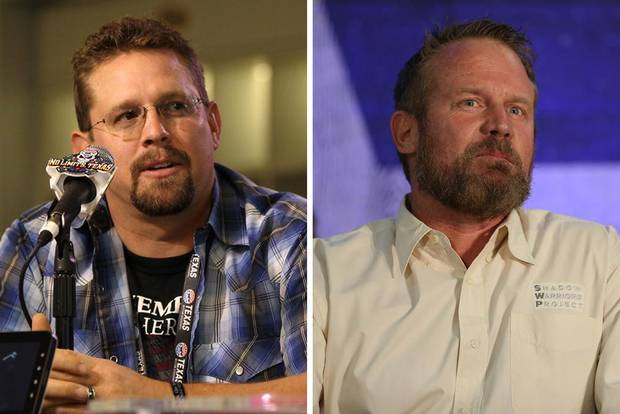
Donald Trump, the presumptive Republican presidential nominee, speaks during a campaign event at the Grand Park Events Center in Westfield, Ind., July 12, 2016.
Damon Winter/The New York Times
An underwear model. A professional golfer. An astronaut. A billionaire.
Just as there has never been a Republican nominee such as Donald Trump, there has never been a nominating convention like the one about to unfold in Cleveland. The newly released roster of speakers for next week's Republican National Convention is as unorthodox as the candidate himself: packed with friends, relatives and minor celebrities and light on party luminaries.
With round-the-clock coverage by major networks, the convention offers a chance for Mr. Trump to solidify his existing support and attract new fans. For four straight days, the media spotlight will be squarely on Cleveland. Some American voters may be tuning in to the presidential election in a focused way for the first time.
The eclectic nature of the speakers and Mr. Trump's own unpredictability are likely to deliver a larger-than-usual number of viewers. "Some people will come for infotainment and others will be waiting to see if there's a train wreck," said Norman Ornstein, a political scientist at the American Enterprise Institute in Washington.
By choosing an unconventional lineup of speakers, Mr. Trump is trying to change weakness into strength. Neither the past two Republican nominees nor the past two Republican presidents will be in Cleveland – and most of the party's rising stars are giving the convention a miss. So, Mr. Trump plans to showcase speakers with "real-life" experience. They're likely to echo his assertion that experience in politics isn't a prerequisite for being president.
One of the most important speakers isn't officially on the list yet: Mr. Trump's pick for vice-presidential running mate. On Thursday, several reports said that Mr. Trump would select Indiana Governor Mike Pence. An avowed social conservative, Mr. Pence embraces free trade and once called Mr. Trump's proposed ban on Muslims entering the U.S. "offensive and unconstitutional."
Family and Real-Life Achievers

Republican presidential candidate Donald Trump, centre, stands with his wife Melania Trump (centre left) and from right: Eric Trump, Ivanka Trump, Donald Trump Jr. and Tiffany Trump. In the front row are Kai Trump and Donald Trump III, children of Donald Trump Jr. on April 21, 2016 in New York City.
Spencer Platt/Getty Images
Five members of Mr. Trump's immediate family will have speaking slots at the convention: his sons, Donald Jr. and Eric, his daughters, Ivanka and Tiffany, and his wife, Melania. While it's not unusual for a family member or two to speak at a convention – Mitt Romney's wife and son delivered speeches back in 2012 – experts say that five such slots is a modern record.
Mr. Trump's family has the task of turning his flaws into virtues. Where his opponents see a bully and an egomaniac with a tenuous relationship with the truth, his wife and children are likely to reveal personal stories about why they feel he would make a good president. Their goal will be to blunt persistent questions about whether Mr. Trump has the temperament to lead the country.
In much the same way, the testimonies planned by friends of Mr. Trump – including several billionaires, two state attorneys-general and a professional football player – will seek to address the nominee's lack of traditional background for the country's top job. Mr. Trump is the only presidential candidate for a major party in U.S. history who has no prior experience in politics or the military.
Among those speaking on his behalf: Antonio Sabato Jr., a soap-opera actor and former Calvin Klein underwear model; Eileen Collins, the first woman to command a space-shuttle mission; professional golfer Natalie Gulbis; and PayPal founder Peter Thiel.
Party Loyalists

Speaker of the House Paul Ryan, left, and Senate Majority Leader Mitch McConnell, right, both Republicans, will be speaking at the GOP convention next week.
Chip Somodevilla/Mark Wilson/Getty Images
Speaking slots at the nominating convention are a coveted commodity among politicians, who know that such attention can make their careers. (A relatively unknown state senator from Illinois named Barack Obama made his mark on a national audience with a speech at the 2004 Democratic convention.)
A few ranking Republican leaders will speak in Cleveland, including Paul Ryan, the Speaker of the House of Representatives, and Mitch McConnell, the Senate Majority Leader. Four of Mr. Trump's former adversaries in the nominating contest – Texas Senator Ted Cruz, Wisconsin Governor Scott Walker, New Jersey Governor Chris Christie and cardiologist Ben Carson – will also deliver speeches.
But there is a distinct lack of next-generation stars in Mr. Trump's lineup, a sign that his brand is still considered radioactive, even by Republicans. Prominent governors, such as Nikki Haley of South Carolina and Susana Martinez of New Mexico, will not attend. Three Republican senators running for re-election are staying away. And John Kasich, the Governor of Ohio who challenged Mr. Trump for the nomination, will not be at the convention despite the fact that it is being held in his home state.
Rick Wilson, a Republican strategist who opposes Mr. Trump, told The Washington Post that there will be a marked contrast between how top Republicans welcome Mr. Trump and how leading Democrats embrace Hillary Clinton at the Democratic nominating convention in Philadelphia.
"Bill Clinton, Hillary Clinton, Barack Obama, Michelle Obama, Elizabeth Warren – they're all going to be out there swinging for the fences," Mr. Wilson told the paper. "But the Republicans, it'll be like a hostage video of people forced on stage."
Benghazi Night

John “Tig” Tiegen, left, and Mark ‘Oz’ Geist, right, attend a press conference prior to a NASCAR race in 2015 in Fort Worth, Texas. The two former security contractors were part of the team that responded to the terrorist attack on the US Special Mission in Benghazi, Lybia in 2012.
Robert Reiners/Chris Graythen/Getty Images
With the Republicans divided over Mr. Trump, he is moving to unify the party around the one area where it finds agreement: opposition to Ms. Clinton. The convention schedule includes an unusual focus on issues that could be used to damage the presumptive Democratic nominee.
Some speakers, for instance, have connections to the 2012 attack on the American diplomatic compound in Benghazi, Libya, which occurred when Ms. Clinton was secretary of state. Two of the survivors of the attack, which left four Americans dead, will speak on the first night of the convention in Cleveland. Mr. Trump has repeatedly criticized Ms. Clinton for not doing more to help the Americans who were in danger. A two-year, multimillion-dollar congressional investigation found no evidence of misconduct or wrongdoing.
Along with the spotlight on Benghazi, Mr. Trump is also planning to feature a presentation on former president Bill Clinton's sexual misconduct, according to The New York Times.
Such a presentation would show, yet again, that Mr. Trump isn't constrained by previous norms for what a candidate can and cannot do. The Republican presumptive nominee is "taking a lot of things that people don't like about campaigns and doing them with relish and resolve," said Julian Zelizer, a professor of public affairs at Princeton University.